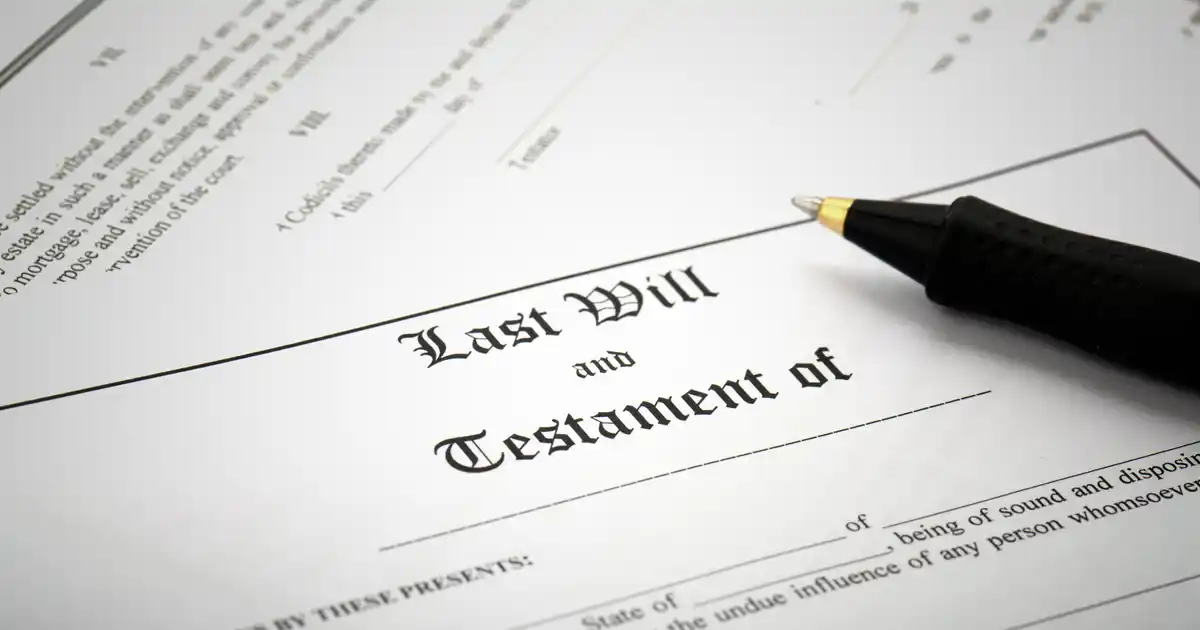Retirement is an ultimate life goal for most of us. And unless you won a lottery (the birth lottery or the literal cash lottery), you’re likely going to have to spend the majority of working years preparing to retire. Luckily, there are a few things you can do to prepare that go a long way to making sure your retirement is financially secure. Or at least as secure as possible, since the economy seems to be a constant roller coaster of boom and bust periods lately.
There’s no easy path to retirement. It takes decades of careful planning and some serious financial discipline. Ideally, you started preparing for retirement as soon as you entered the work force on a full-time basis. Even if you’re a bit late to the party, it’s better to start planning for retirement now than to keep putting it off. If you ever plan to “clock out” for the last and final time, follow these steps to get you closer to your final goal.
Start Investing
The earlier you start putting some of your regular income into long-term investments, the more it will worth over the years. The power of compound interest can turn even meager investments into strong six-figure amounts over a couples of decades. However, we’re not talking about downloading a stock trading app and YOLOing all your money into GameStop stock. That’s more of a gamble than an investment.
Instead, get an actual retirement plan like a 401(k) or an IRA. These are professionally managed by financial experts, using a diverse set of investments. Even if one single company in your plan doesn’t perform well, the overall growth of your other investments will bring up the average. These are a safe and steady to grow your retirement nest egg over time.
 Shutterstock
ShutterstockTake Advantage of Free Money
Free money? That sounds great, right? It sure does, but a lot of people still don’t take full advantage of this potential freebie. If you work for an employer that offers a 401(k) plan, it probably includes some sort of matching component. For example, a common 401(k) feature is that your employer will match your own investments, dollar for dollar, up to 4% of your annual income. More generous plans might offer to match half of your contributions, up to another few percent of you overall earnings. That’s free money, people.
Despite this, a lot of people don’t take advantage. Some feel like they can’t afford to spare even a couple percent of their pre-tax income to contribute to a 401(k) account. Others feel like they can do a better job managing their own retirement funds via a Roth IRA or investing in mutual funds and ETFs. But it almost never makes sense to turn down free money — even if you won’t be able to access it until you quit working for good.
 Shutterstock
ShutterstockPay Off Your Debts
To be fair, not all debt is created equally. You shouldn’t necessarily be in a rush to pay off the $200,000 you still owe on your mortgage, for example. The interest rate is likely low and the asset itself has probably gone up in value over the years. Other types of debt, however, can be a wet blanket on your retirement plans.
Any sort of consumer debt (credit card, personal loans, line of credit) with a carried balance will be charging you regular interest. Even worse, they aren’t tied to any particular asset. Your car payment, which is tied to an asset, is also something you should get paid off as soon as possible. After all, the value of your car continues to drop every month.
While being (mostly) debt free isn’t technically a requirement of being retired, it will make things go a lot smoother if the only debt you’re worried about is the tail end of your mortgage. And if you have that paid off too, even better.
 Shutterstock
ShutterstockMake a New Budget
The budget you used during your working days won’t be the same as the one you use when you’re retired. Some of your old expenses won’t factor in as much, such as the cost to commute to and from work. You may not need to spend money on other work related things, like supplies, tools, or new clothes.
On the other hand, you may find new expenses popping up. There’s a good chance that your healthcare spending will increase once you’re in your 60s or 70s. You may want to spend your retirement doing things you didn’t have time for while working, like travelling or playing golf. You’ll need to factor in those expenses into your new retirement budget too.
 Shutterstock
ShutterstockReconsider Your Insurance Need
As you age, your insurance needs will naturally shift. The most likely change will be in your life and health insurance needs. Once you’re in your 60s, you probably don’t have children who are still financially dependent on you. You can probably cancel your term life insurance policy, or let it expire. If you have whole life, though, it may be worth keeping. If you’re struggling with the monthly premiums on a fixed income, ask your younger family if they want to take on the costs in exchange for being named beneficiaries of the policy. This is a common estate planning tactic to build family wealth.
Your health insurance, on the other hand, may need to be increased. While Medicare and Medicaid are helpful, to a degree, they often aren’t enough. And if you know that your employer-provided health insurance will expire once you leave the workforce, you better start researching alternatives (and their costs).
 Shutterstock
ShutterstockCheck Your Will and Power of Attorney
You’d be surprised at how many people never bother to create a last will and testament or a power of attorney document. Even worse, a large percentage of those who do bother to create these legal documents never go back and update them. Life changes all the time. New children are born, older relatives pass away, couples get married or divorced. Plus your assets will have changed (and hopefully increased) since the day you signed your will. As you approach retirement, you should make sure that updating your important legal documents is on your to-do list.
If you’re children are adults now, you don’t need to set aside money for college anymore. You may have a significant other joining you in retirement, meaning you’ll both need to plan for what happens when one of you inevitably passes away first. How you plan to distribute your estate is entirely up to you. However, to avoid confusion (and emotionally hurtful infighting after you pass), make sure all your final wishes are clearly spelled out in proper legally binding documents.
 Shutterstock
ShutterstockApply For Government Benefits
Although you definitely should never rely on Social Security by itself to get you through retirement, you shouldn’t ignore it completely either. After all, you’ve been paying into that system your entire working career. No matter how much you’re eligible to receive upon retirement, make sure you apply for it. Then add the amount to your retirement budget.
You can collect different amounts of social security, depending on when you apply. If you wait a few years, your monthly benefit will be higher than if you collect it as soon as you’re eligible. You supplemental retirement savings or investments may dictate your Social Security strategy. For a more detailed explanation, check out this article.
 Shutterstock
ShutterstockConvert Your Savings to Income
Once you stop earning a regular paycheck from an employer, you need to start paying yourself. Those savings accounts and investments that you’ve been contributing to over the years are now likely one of your primary sources of income. In order to actually get your hands on that income, you’ll need to set-up some sort of withdrawal schedule.
Whether you want monthly, quarterly, or annual payments, consult your retirement budget first. Then plan to only take out the money you need to cover expenses. The rest of it will serve you better remaining invested, growing slowly.
Even if you withdrawal the money faster than it grows, it doesn’t make sense to just empty you retirement accounts the day you hang up the work boots. You will likely live another couple of decades, at least, so you might as well keep the unneeded portion invested, while still taking out enough to keep you afloat.
 Shutterstock
ShutterstockDon’t Stop Investing
Speaking of investing, reaching retirement age doesn’t mean you should stop doing it entirely. If you have room in your budget, keep putting money into mutual funds, bonds, or ETFs. Even if you’re putting in way less than when you were working, it’s still worth it. That money will continue to grow over time, which will come in handy should your health carry you deep into your 80s or 90s.
You may be thinking investing in counter productive. After all, why withdrawal money from one investment just to put it back into another one? The key is getting a solid return. For example, if you have money sitting in a high yield savings account, it might gain as much as 2 or 3% a year. On the other hand, the stock market typically returns 5 to 10% annually, on average. It may be worth moving your investments around to maximize your nest egg. If you’re not sure what the best option is, consider speaking to a professional financial planner.
 Shutterstock
ShutterstockResearch Additional Income Sources
Many Americans are faced with an unfortunate truth when they retire: they simply don’t have enough saved to survive. If you find yourself struggling financially, you may need to start looking for ways to make additional income. We certainly don’t suggest heading back into the work force full-time, spending 40+ hours a week slaving away.
Instead, look for part-time work that you might actually enjoy. There are plenty of popular part-time jobs for seniors. Not only will it get you out of the house, but these roles also offer a chance to socialize, get exercise, and — most importantly — earn a few extra bucks. If you have a particular hobby or niche skill, perhaps you can leverage it into a part-time gig for even greater enjoyment.
 Shutterstock
ShutterstockDon’t Forget The Taxman
If you thought your days of forking over anywhere between 10% and 40% of every dollar you earned was over just because you retired, think again. The taxman still cometh, and his debts are inevitable. Worst of all, your retirement income likely doesn’t come with automatic deductions like your paychecks did, leaving plenty of seniors in for a shock when tax season rolls around.
You can make certain steps to protect yourself from a large tax liability. They include using tax advantaged investment accounts, using any available tax deductions or credits, and generally having a lower annual income in retirement than you did while working. Whatever you do, don’t make the mistake of thinking Uncle Sam no longer wants his cut of the proceeds.
 Shutterstock
ShutterstockThe Bottom Line
Finally retiring is a major life achievement. However, you’ll want to make sure your golden years aren’t a constant battle against your own finances. The best thing you can do is start saving and investing early. If you didn’t start in your 20s, go ahead and start immediately. After that, start planning ahead for what your retirement is going to look.
Start by estimating your retirement income, and then craft a budget around that. Don’t forget about things like taxes and new healthcare costs. It also pays to do a little estate planning, in terms of a new will and power of attorney documents (if necessary). Ultimately, you should be able to enjoy a comfortable and happy retirement with a bit of thoughtful planning ahead of time.
 Shutterstock
Shutterstock







